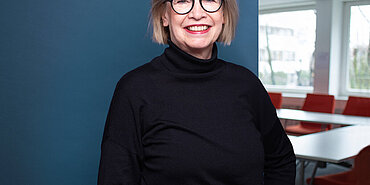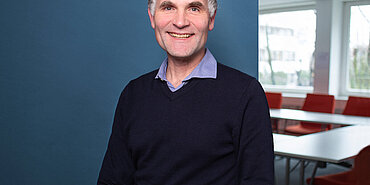Language can be a funny thing. The Turkish equivalent of the German terms for volunteering – Ehrenamt or Freiwilligenarbeit – is gönüllülük, which translates to “matter of the heart”. So is it a case of German bureaucracy meets Turkish passion, as it were? Of course not. German volunteers naturally approach their work with just as much enthusiasm as their Turkish counterparts. That said, the connotations associated with these terms are an indicator of how the field has developed historically and socially in the two countries. In their remarks, Wolfgang Hinz-Rommel from the Social Welfare Service of the Protestant Churches in Württemberg and Erkan Şamiloğlu from the Turkish Ministry of Youth and Sports explored the background.
Different histories
Foundations as an early form of volunteering have existed in both countries since the Middle Ages (Germany) and the Ottoman Empire (Turkey). But then the path splits. In 19th century Germany, a growing bourgeoisie and the workers’ movement led to the establishment of charitable organisations that intended to give the working classes a voice and a fair say in society. In Turkey, similar developments only began later, after the Ottoman Empire ended and the republic was founded. They were initially viewed with suspicion by the government because it wanted a clear separation between state and religion. It is due to these differing paths that volunteering in Germany is more institutionalised and regulated by law. But what are the practical implications of this? Christoph Engler and Hanno Fietz from Germany’s Federal Youth Ministry examined this aspect in their presentations. Legally regulated volunteering schemes and spending money or allowances for volunteers – an incentive, as it were – do not exist in Turkey. That said, since Turkey’s Youth Ministry was reorganised in 2013, things have begun to change. Today, volunteering schemes for young people are widely publicised, and a Year of Volunteering was celebrated in 2019.
Germany’s more institutional approach to volunteering and Turkey’s interpretation of it as a matter of the heart both appeared attractive to the “other” side. For instance, Hakan Ekinci from the organisation Sivil Yaşam Derneği called for more incentives for potential volunteers and hoped this would popularise volunteering and attract more young people. Meanwhile, the German participants were very appreciative of the presentations by Sümeyra Yıldırım and Feyza Kılınç, who volunteer for a youth centre and an NGO, respectively. Their enthusiasm and joy as they reported about their work was tangible.
Social cohesion
The differences notwithstanding, in both countries it is understood that volunteering makes a vital contribution towards social cohesion and is a valuable experience for young people as they approach adulthood. “In Turkey, many people probably don’t even realise they are volunteering,” said Buse Demircan from the Turkish Youth Ministry during the event. And yet Turkey is a country in transition. For years Turkish society has been urbanising; its cities are growing. Today, Istanbul is a megacity with 16 million inhabitants. These changes are transforming the social fabric both in cities and in rural regions. Neighbourhood assistance no longer exists by default. What is more, Turkey is a young country. While young people are volunteering in the healthcare sector, the fire service, earthquake assistance and in youth work, their number needs to grow to the extent possible. Incidentally, this is also seen as desirable in Germany, although the situation there is challenging in other ways, given that its population is ageing.
The dialogue continues
Five hours of Zoom presentations is a long time – and yet every minute was necessary in order to get an overview of the situation in both countries. “We’re often quick to focus on the disadvantages of online events,” said IJAB’s Christiane Reinholz-Asolli, who co-hosted the event together with Hans Steimle from the Federal Association of Protestant Youth Social Work, as she closed the event, “but let’s remember that this technology allows us to keep up the conversation in the first place.” The dialogue continues on 27 October and 25 November, when attendees will talk about training, education, recognition and certification (October) and participation, inclusion, new target groups and digitalisation (November). Registration for both events remains open.




